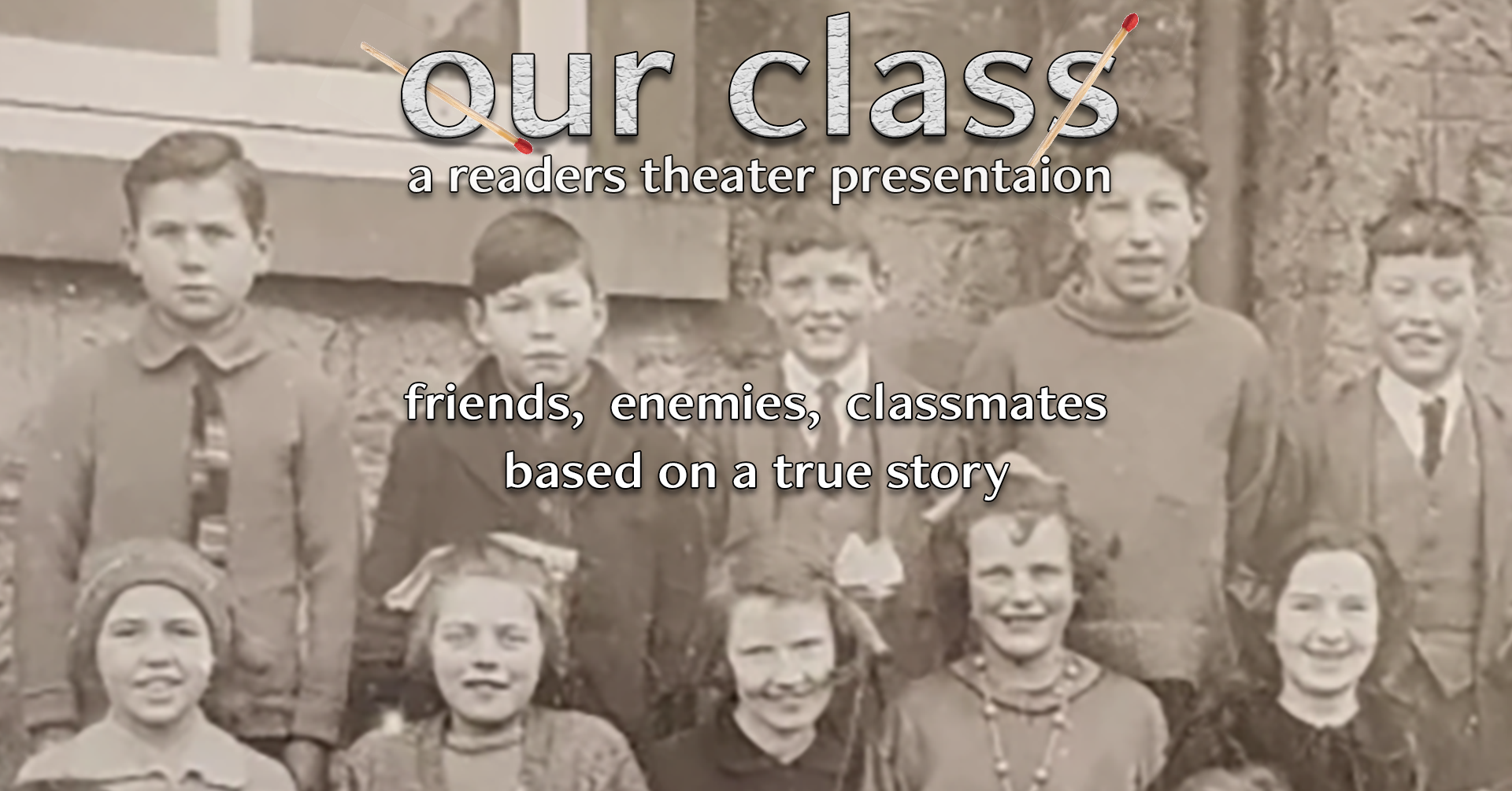Thought-provoking “Our Class” to be presented
by Fall Festival
By Susan L. Peña
The Fall Festival of the Arts will present “Our Class,” the first of two plays in this year’s lineup, in a staged reading on Sunday, Sept. 28 at 3 p.m. at Christ Episcopal Church in downtown Reading. Written by Polish playwright Tadeusz Slobodzianek (trans. Ryan Craig), “Our Class” had its world premiere in London in 2009, and its New York premiere last fall at the Brooklyn Academy of Music. The play, directed by John Gancar, delves into the lives of 10 students who were caught up in the nearly forgotten 1941 massacre of members of the Jewish community in Jedwabne, a small village in northeast Poland, by their Polish Catholic neighbors.
In a recent interview, Gancar said he saw the New York production of “Our Class” by the Classic Stage Company in the off-Broadway Lynn F. Angelson Theater, after it was moved from Brooklyn. Directed by Igor Golyak, a Ukrainian Jew now living in Boston, that production was highly kinetic, with many visual metaphors to suggest violence, rather than show it realistically.
“It was a wonderful production,” Gancar said, “and the actors were amazing. But I personally thought it was over-directed. It’s an odd play—there are no real scenes. It’s people taking turns telling their stories; there are 10 protagonists in this show. There was so much going on in that production, it could be very confusing (at times). So I wanted to do a reading, and just strip everything away and focus on the words.”
Gancar, who has directed many productions for the Fall Festival and other local theaters, has recruited 10 local veteran actors who he feels are more than capable of bringing the play to life without a set or any special effects. Because the play is about two hours long and requires concentration from the audience as well as from the actors, he has decided not to have a talkback afterwards. In the New York production, according to Golyak (in an excellent interview by Frieda Vizel on YouTube), many members of the audience would linger in their seats for a while afterward, just silently processing what they had just seen, or they would gather outside, talking little.
The characters in the play have grown up together, in the same class at school, going through the typical adolescent rivalries and friendships and first-love affairs. But when the Nazi occupation begins, the division between Jews and Poles begins to open up—as Golyak says, “anti-Semitism is a light sleeper”—culminating in the horrific incident in which Jews, including some of the students, are rounded up, humiliated and beaten, and then driven into a barn, which is lit on fire, killing everyone inside.
The characters, both the survivors and the dead, speak about their lives, before and after the tragedy, including one Jewish woman who is now very old and in a nursing home. The audience will see people of various ages, talking about their marriages, their suffering, their time under the Soviet government, their war stories.
“I’ve always been fascinated with stories about World War II and the Holocaust,” Gancar said. “That’s why I went to see this play. This is a different kind of story. There are no concentration camps. These kids grew up together and then turned on each other.”
For many years after the war, the Polish government suppressed the true story of the Jedwabne massacre, blaming the entire incident on the German Nazis, Gancar said. Not until Polish-American historian Jan Gross’s book “Neighbors: The Destruction of the Jewish Community in Jedwabne, Poland” was published in 2000, first in Polish, then in English, that the truth emerged.
The result was at first shock and horror (with some denial) at the realization that this was a Polish, not a German, war crime. But gradually, a collective reckoning with the history of anti-Semitism in Poland emerged. There was an investigation, many articles, and eventually, an apology for the massacre by then-Polish President Aleksander Kwasniewski in 2001.
In the play, Gancar said, “some of the survivors (6 out of the 10 students) get involved with the Communist government; some become spies. The married couple (a Polish man and Jewish woman) lived a long time in the village, but they had a terrible marriage.” All of them were scarred by the incident.
He compared the play to others, such as Tennessee Williams’s “Glass Menagerie,” in which an actor slips in and out of the present time to let the audience experience the past as well. “The actors have to think about where they, are to play this kind of scene,” he said. “They’re in the here and now, with the audience, in the space, but they are also in the past. It’s blowing my mind how good these actors are.”
The 10 protagonists will be played by Rachel Himes-DeWalt (Dora), Becca Snyder (Zocha), Vicki Haller-Graff (Rachelka), Kevin Adams (Jakub Katz), Corey Clark (Rysiek), Daniel Graf (Menachem), Joel Gori (Zygmunt), Philippe Levesque (Heniek), Richard Bradbury (Wladek) and Barry Steely (Abram).

